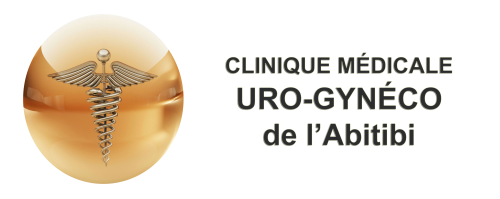WELCOME TO THE URO-GYNECO CLINIC
Treatment of genital lichen sclerosusWhat is vulvar lichen sclerosis?
Although the lichen sclerosis of the vulva is relatively simple to treat from a medical point of view, it does have potential consequences for the intimate and sexual life of the affected women. ” Why me? Why does this happen to me?
These questions are quite normal among women diagnosed with vulvar lichen sclerosis. Better knowing the disease helps us better treat it!
Josée Parent
Gynécologue
TREATMENT OF GENITAL LICHEN SCLEROSUS
What is it?
Lichen sclerosus is a chronic skin disease that affects women more than men. In women, it is mainly located on the clitoris, the vaginal labia, all the way to the anus area. In men, it is located on the glans and foreskin of the penis.
Contrary to what one might fear, lichen sclerosus is neither contagious nor sexually transmitted. But where does it come from?
Its causes are so far nebulous. It is most likely of autoimmune origin, that is to say that the immune system recognizes the skin of the genitals as foreign and the attack by an inflammation that can be of little to very symptomatic according to the person.
What are the symptoms?
Lichen sclerosus results in changes in the skin and mucosa of the vulva that sometimes cause severe itching. These changes are of progressive appearance: the skin becomes more fragile and paler, sometimes pearly, it becomes gradually thicker and indurated or sclerotic.
These changes can cause painful cracks, promoted by sexual intercourse. The sclerous lichen sometimes causes no manifestation and is discovered during a routine clinical examination by the gynecologist.
What is the cause and is it contagious?
The cause of lichen sclerosis is not well known. It is a chronic inflammation that often remains localized to the skin and genital mucosa but that can also reach the perineum, the perianal region, the anus and sometimes other parts of the skin in the form of more plaques or less indurated. It is not a contagious disease because it is not due to a microbial agent. It is not related to a lack of hygiene.
Rarely, we find in the same family, several people affected by this disease, so we suspect a genetic ground. The sclerous lichen sometimes causes no manifestation and is discovered during a routine clinical examination by the gynecologist. This condition usually occurs between the ages of 50 and 60, but all ages can be affected. Girls can also be reached.
How is it diagnosed?
In the vast majority of cases, lichen sclerosus is diagnosed on the mere appearance of lesions by an experienced dermatologist or gynecologist. However, to confirm the diagnosis, and because of the potential chronic and recurrent evolution of this condition, it is sometimes proposed to make a biopsy. This biopsy is done with local anesthesia.
With which diseases can this diagnosis be confused with?
Other causes of itching, cracks and / or whitening of the vulva, are represented by recurrent or chronic mycosis, chronic eczema, psoriasis, vitiligo and especially vulvar atrophy related to menopause. The biopsy will then make an accurate diagnosis.
Are blood tests required?
Thyroid disease is sometimes associated with lichen sclerosus. It may therefore be warranted to look for thyroid dysfunction when there are suggestive clinical signs or other cases in the family. But in the majority of cases no blood test is necessary.
What is the natural evolution of the disease?
Chronic inflammation of the skin, when left untreated, causes changes in the appearance of the vulva that can lead to more difficult and painful intercourse and sometimes local infectious, complications.
Is it precancerous?
Vulvar cancer is rare. Some of these cancers develop on lichen sclerosus. However, the risk of developing vulvar cancer in patients with vulvar lichen sclerosis seems low when it is well managed. This can be manifested by a localized thickening of the skin, an erosion that does not heal, or even a swelling that bleeds. These symptoms, if they persist, should lead you to consult your doctor.
Contact-us for more information
Clinique Médicale URO-GYNÉCO
Payment Methods
*Please note that some services are covered by the RAMQ or your insurance. Find out more!
Opening Hours
Address
1660, 3E AV
VAL-D'OR, Québec
J9P 1W1



